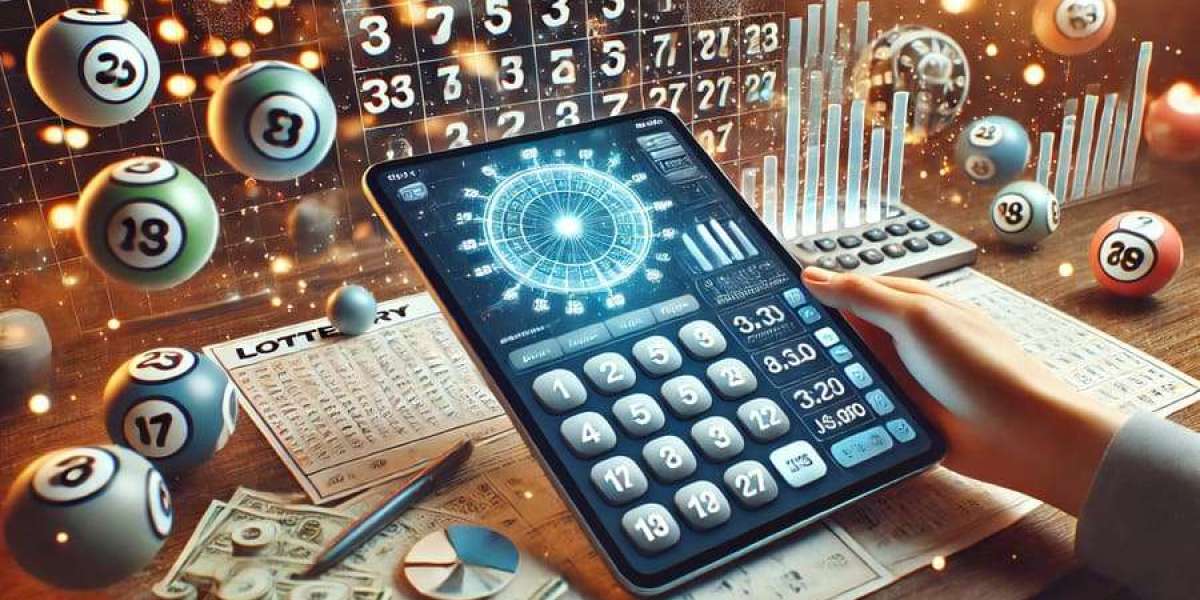The psychology of taking half in the lottery is an often-overlooked facet of smart strategies. Adopting a optimistic mindset fosters resilience amidst the ups and downs of taking half in the lottery.
The psychology of taking half in the lottery is an often-overlooked facet of smart strategies. Adopting a optimistic mindset fosters resilience amidst the ups and downs of taking half in the lottery. Successful players typically articulate practices such as visualization and mindfulness, specializing in the method rather than the result. This mindset reduces stress and pressure, making the gaming expertise more enjoyable. Moreover, believing in the risk of profitable —while being practical about odds— helps maintain motivation over time. Players who embrace a healthy perspective on luck and likelihood have a tendency to interact more strategically and thoughtfully of their gameplay.
As expertise continues to evolve, so too might the lottery techniques. Interactive platforms, digital wallets, and even cryptocurrency are on the horizon for lottery operations. These developments could foster greater engagement amongst players but additionally necessitate enhanced security protocols to forestall potential threats.
However, these cases are uncommon and usually result in strict authorized repercussions for these concerned. The systems in place for most state-run lotteries are designed as highly safe operations. In reality, lottery organizations utilize third-party audits and transparency initiatives to strengthen public trust. The lottery area is under constant scrutiny by unbiased agencies to ensure adherence to regulatory requirements, promoting equity and honesty in draws.
Keeping abreast of industry trends and information is a vital element of a smart lotto technique. Lottery video games evolve frequently with new attracts, guidelines, and technologies impacting how numbers are drawn and the way winnings are processed. By staying informed about modifications such as the introduction of new games, enhancements in ticketing processes, and shifts in rules, gamers can anticipate which video games to try at any given time. Being proactive ensures you are not taking part in outdated strategies based mostly on the earlier setup, thereby enhancing your chances.
Regulations governing lotteries play a significant role in maintaining equity and transparency within the process. Most jurisdictions require strict oversight to ensure that draws are performed pretty, and mechanisms similar to randomized quantity mills or gravity-picking machines are commonplace. Consumers are often encouraged to bear in mind of any discrepancies in lottery integrity and to review the laws outlined by their respective lottery commissions. Understanding the rules and figuring out who to turn to with issues promotes a more informed public, ultimately benefiting the lottery system's popularity.
Before diving into specific methods, it is important to know the nature of lottery odds. Each lottery has different odds depending on the vary of numbers from which gamers can choose. For occasion, in a typical 6/49 lottery, the percentages of winning the jackpot are approximately 1 in thirteen,983,816. Understanding these odds is key because it frames expectations and guides technique selection. By analyzing the probabilities and potential payouts, players can make informed decisions that align with their threat tolerance. Furthermore, recognizing the variance between games — for instance, scratch-offs versus traditional attracts — can lead to more tailor-made and effective strategies.
When examining
Lotto Prediction outcomes history, one can leverage statistical instruments to establish patterns among winning numbers. Past draws reveal sure numbers appear with higher frequencies, whereas others remain elusive. For example, information from various lottery organizations suggest that numbers between 1 and 31—often chosen for their significance in dates—tend to be drawn more incessantly. However, this has led to significant sharing of winnings among gamers. Statistical analysis allows potential gamers to weigh their number selections based on their historical efficiency, thus enhancing their chances for achievement.
A fascinating facet of
Lotto Winning Probability games is the emerging patterns based on statistical evaluation. While lotteries are designed to be utterly random, players often examine successful numbers or previous draws to predict future outcomes. However, it is important to understand that every draw is independent, which means that previous outcomes don't have an effect on future ones. Statistically, most lottery experts advise towards relying closely on "lucky numbers" or historical information when making alternatives, as the correlation is nearly nonexistent. Despite this, many gamers derive comfort or pleasure from using past developments in their gameplay.
Hot and cold numbers are prominent concepts in daily
Lotto Statistics predictions. Hot numbers are these with frequent appearances over a specific timeframe, while cold numbers are those who have not been drawn lately. Many gamers swear by following scorching numbers, arguing that their commonality signifies a better chance of reappearing. Conversely, others advocate for cold numbers, suggesting that they're due for a comeback. The debate over which technique is superior continues amongst gamers. Data signifies that while some lotteries might show consistency with sizzling numbers, others could exhibit randomness, negating the effectiveness of this technique. Players should analyze particular examples and information relevant to the lotteries they are collaborating in to make knowledgeable decisions.
 Industry Changers: How Religious Crackdowns and Tech Innovation are Reshaping Nigeria's Betting Scene
Industry Changers: How Religious Crackdowns and Tech Innovation are Reshaping Nigeria's Betting Scene
 LMCHING is getting ready for the future of deluxe e-commerce through international expansion and advanced brands
LMCHING is getting ready for the future of deluxe e-commerce through international expansion and advanced brands
 안전한 슬롯사이트 선택 가이드: 안전성과 보상을 모두 잡다
안전한 슬롯사이트 선택 가이드: 안전성과 보상을 모두 잡다
12 Facts About Tiktokpornstar To Make You Take A Look At Other People
 Ведучий Київ.
Ведучий Київ.


